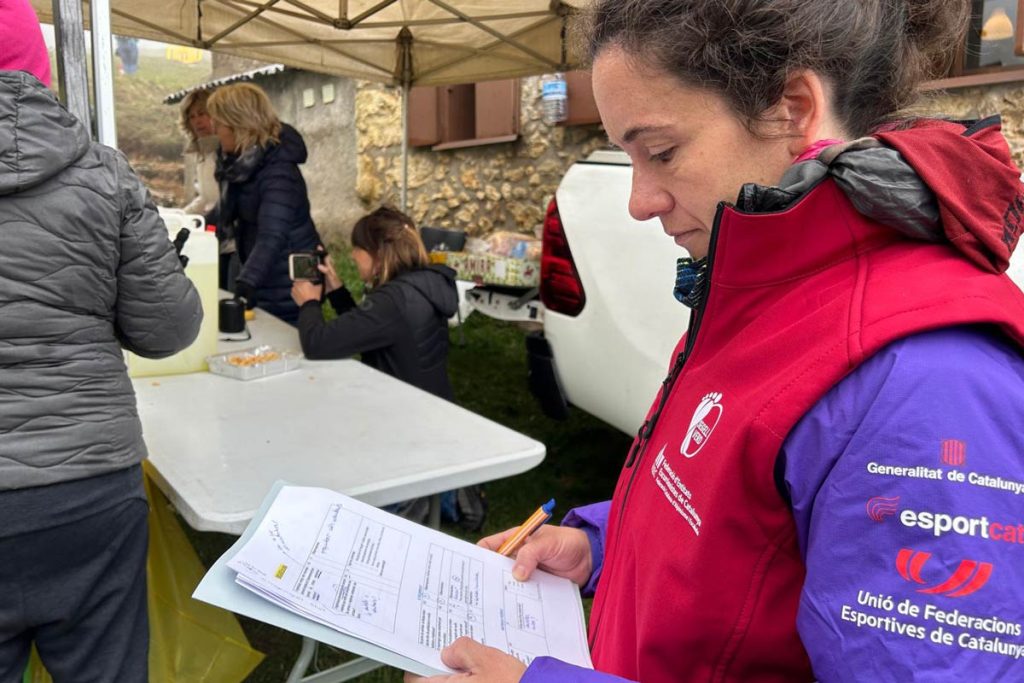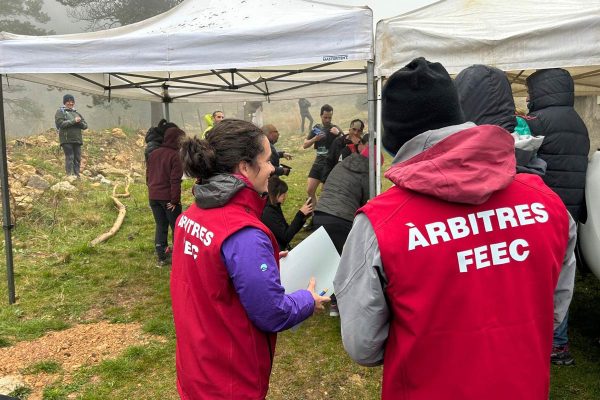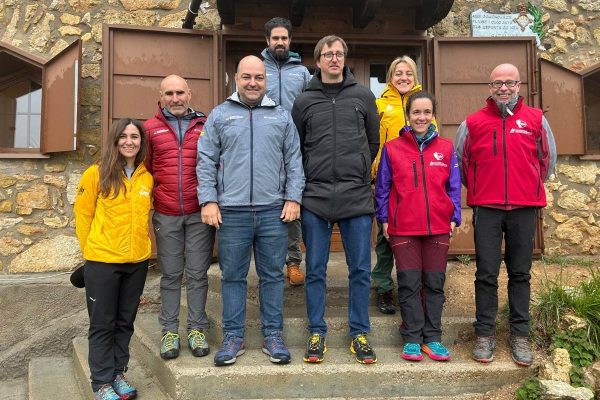As part of it Member Association’s Climate Action PlanUIAA is committed to sharing many case studies on its member association’s climate journey in 70 different countries. These case studies fall within the field of submission, mitigation, adaptation, education and advocates. Case studies come from associations of different sizes, from people with full-time staff and budgets dedicated to implementing climate action plans to smaller federal operations that fully volunteer.
The latest case study comes from federaciód’potitats far away de catalunya (FEEC)/Catalonia Mountaineering and Rock Climbing Federation, which has been a full member of the UIAA since 1932 and has calculated an impressive membership of over 86,000 people throughout Catalonia. One of the cornerstones of the FEEC project is the Green Label Program, which is described in detail below.
Green label -feec (Segell Verd-Feec)
Green tag-feec(Segell Verd-Feec) Develop tools to ensure sustainability in mountain sports activities. This initiative is in response to frequent increases in natural space, a trend that has intensified in recent years and is a threat to conservation. The design of this solution is based on Best Practice Code in Mountain Competition, Published in 2017 and developed to objective standards to minimize the environmental impact of race and sporting events.
The certification is both a consulting and learning tool for organizations and entities seeking to improve their environmental management. Thanks to collaboration with the Department of Territory, Housing and Ecological Transition (DTER), key elements of this process are introduced: Environmental Referee (See the figure below), experts responsible for ensuring that they meet established standards, conduct rigorous assessments of each event, advise organizers, and propose improvements to reduce environmental impacts.
The process of obtaining a seal consists of three stages:
- application: Verification of submission of documents and self-assessment forms
- Event Assessment: Environmental referees pass environmental bill verification
- Final evaluation: Review by the Advisory Committee of the Catalonian Federation of Mountaineering and Rock Climbing (FEEC) which issues final resolution
Project goals and expected impacts
Green labels are designed as a strategic tool that can drive a real transformation in the way mountain activities are conceived and organized. Against the backdrop of increased human pressure on natural space, the program aims to provide a solid reference for sustainability to organizers, athletes and users of these environments, thereby promoting a culture of environmental responsibility and commitment.
The main purpose is to support and guide the transition of an organizational entity to a more environmentally friendly model, providing objective standards to identify and minimize the impact of their activities. The seal is not only a mark of environmental quality, but also serves as a teaching and self-assessment tool, enabling organizations to identify weaknesses and implement tangible improvements in their environmental management.
The project aims to break the perception that mountain environments are unlimited use of spaces, thereby promoting a more conscious viewpoint that values its vulnerability and protection. Often, the impact of sports or recreational activities is not noticed by participants or even the organizers themselves. Green Labels attempt to reverse this with training, personalized advice and a rigorous assessment of best practices.
Milestones achieved so far:
- Pilot stage In testing certification standards and adjusting them to the department’s realistic activities
- Official releasethrough the implementation of certification and training environmental referee network
- Expand and continuous improvementin combination with method and standard adjustments to ensure more effective application
Expected impact
In terms of logistics and participant awareness, the implementation of green label stamps will directly help reduce the environmental impact of mountain activities. In the long run, the following can be expected:
- The transformation of the organizational style and experience of mountain activities, from planning to execution and post-recovery, incorporates environmental standards into all stages.
- The impact on sensitive ecosystems has been greatly reduced due to corrective measures and improved coordination with natural space managers.
- Promote sustainable materials and infrastructure, as well as collaboration with suppliers and local entities with the same environmental value.
- A greater sense of environmental awareness and responsibility among athletes, volunteers and the public encourages them to adopt more respectful habits and become active agents in nature conservation.
Through this program, FEEC aims not only to improve environmental quality standards for mountain activities, but also to build a network of organizations dedicated to a more sustainable management model as a role model and inspiration for other sports disciplines and society as a whole.
Next step
The next step is to consolidate and expand the green label – FEEC. Planned actions include:
- Extend certification to other sports modes For example, mountain biking (BTT), climbing and skiing climbing
- Automated certification process,,,,, Provide digital tools to help organizers self-evaluate and simplify their applications
- Increase the number of environmental arbitrators,,,,, Make sure every event is under adequate supervision
- Incorporate new environmental standards,,,,, Adapt to emerging needs and the latest sustainability standards
- Develop communication and awareness strategiesincluding training programs for organizers and athletes and the increasing media presence
- Create a progressive authentication systemdistinguish the level of sustainability excellence
Lessons learned and useful tools
Experience gained in the development and implementation of Green Label – FEEC offers several key courses:
- Support for organizers is crucial. Many entities want to improve their sustainability practices, but require practical guidance.
- The role of environmental referees is crucial, not only in certification, but also in the application of improvements and awareness of environmental impacts.
- Flexibility is key. Certification standards need to be adjusted for different situations, and continuous review is important for improvement.
- Organizational support and alliances with other stakeholders help legalize stamps and facilitate their implementation.
Key tools that prove useful:
- Reference guidelines, e.g. Best Practice Guide to Mountain Competition and Guide to Sustainability of Outdoor Sports Events Published by the Ministry of Territory and Sustainability of the Government of Catalonia, the department is a key reference for defining certification standards.
- Education and training materials help to increase awareness among organizers and participants about best environmental practices.
- Network of experts and collaborative entities that provide technical knowledge and support in implementing certifications.
The project not only changed the management of mountain sports events, but also actively promoted the protection of social territories and environmental awareness.
The Spanish version of this report is available here.
To discover more UIAA shared membership case studies, click here.









